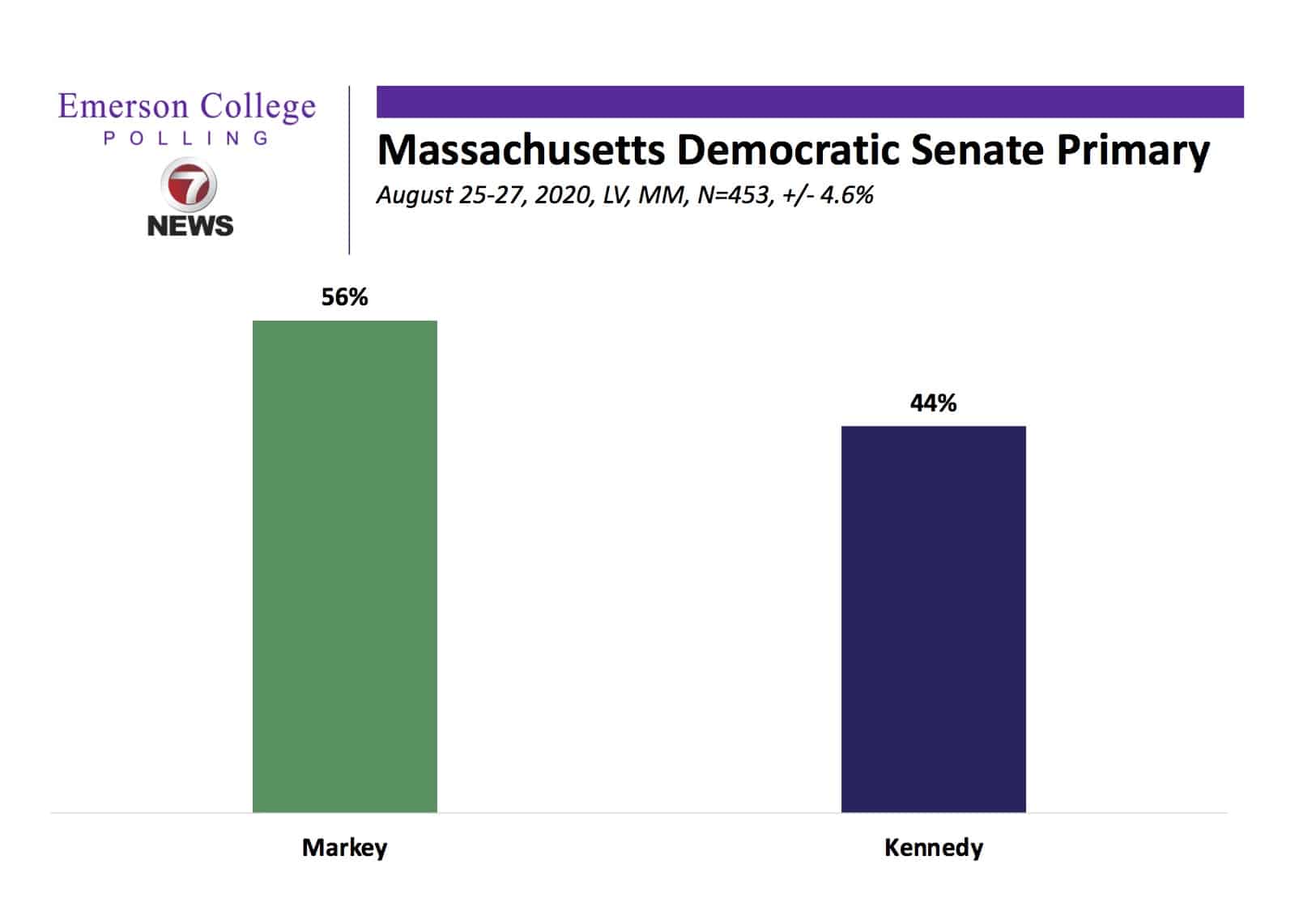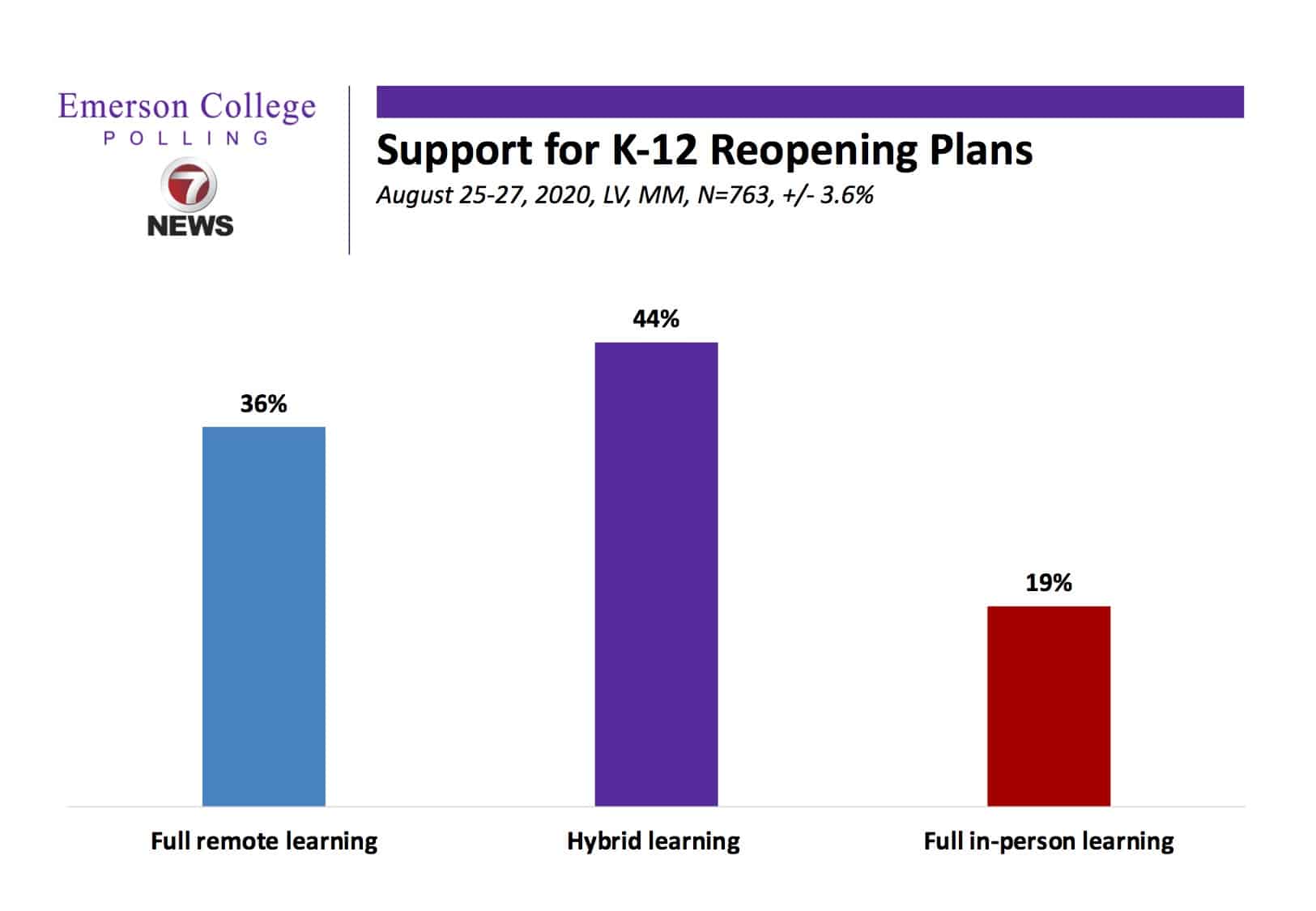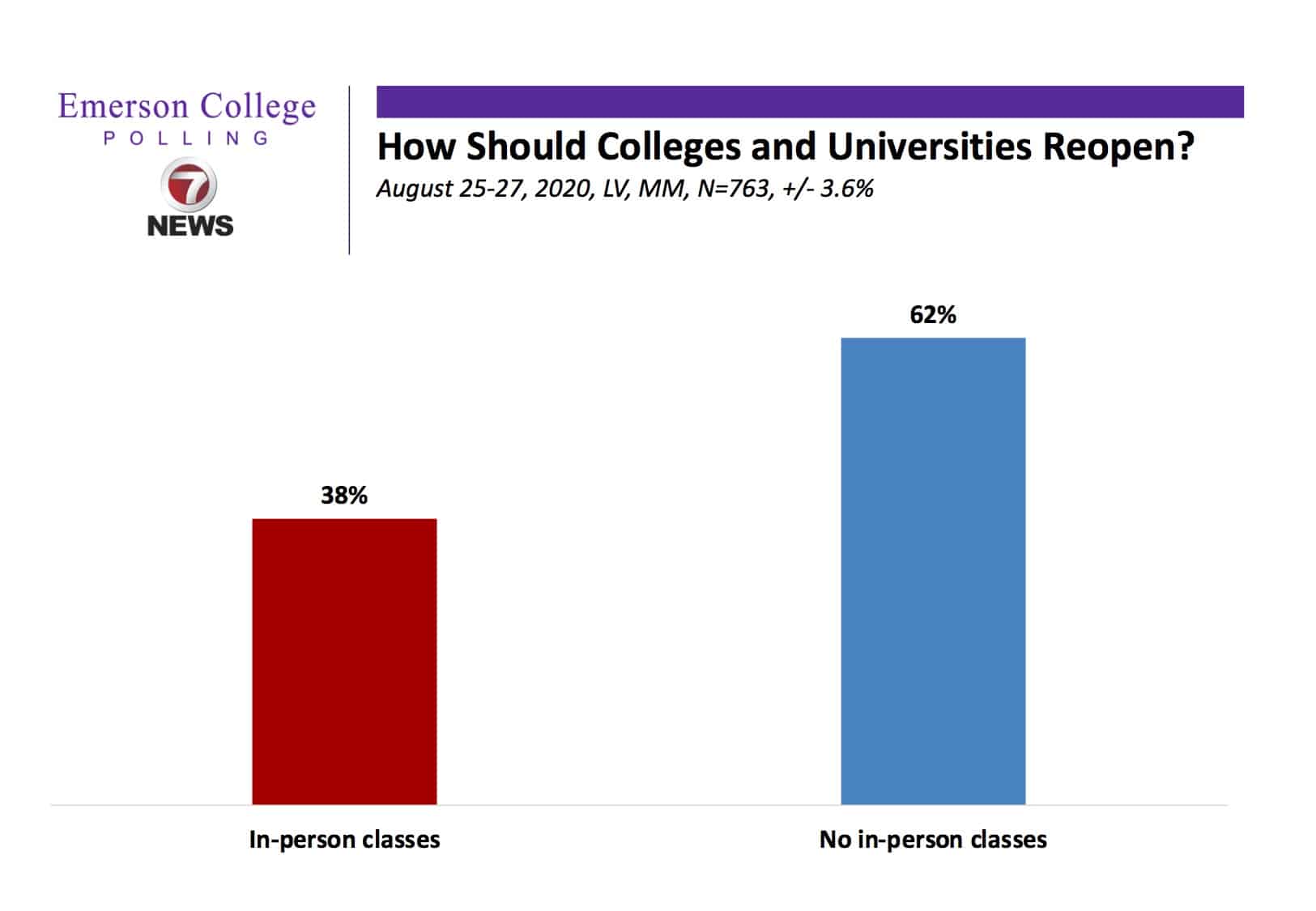The final Emerson College/WHDH poll finds Senator Ed Markey leading with 56% support and Congressman Joe Kennedy behind at 44% (n=453, +/-4.6%). This is a reversal from the Emerson College/WHDH Poll in May that had Kennedy leading 58% to 42%.
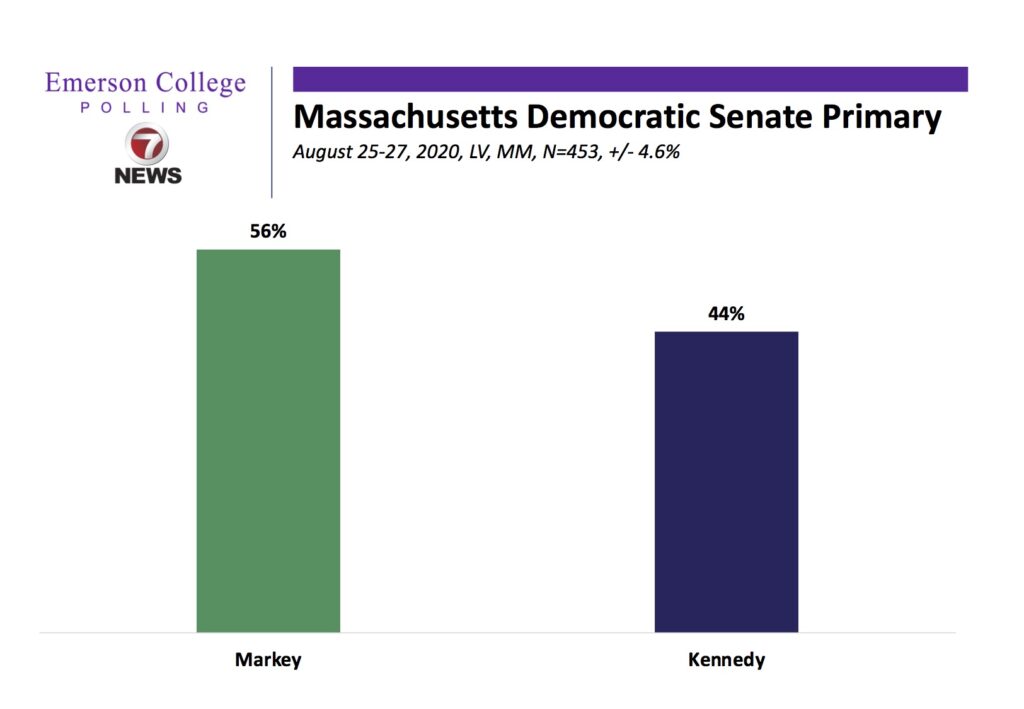
Markey’s base support is registered Democratic voters, where he leads 61% to 39%; Independents are split between the two candidates, but are breaking for Markey 51% to 49%.
Another base demographic for Markey are younger voters, particularly those 18-29, who break for Markey 70% to 30%.
Kennedy’s strength is with lower educated voters; he is leading those who have a high school diploma or less with 66% of the vote. Markey leads amongst all other educational groups.
Spencer Kimball, Director of Emerson College Polling analyzes: “it appears that Markey was able to re-define himself over the summer as a Bernie Sanders style progressive which allowed him to win over previous supporters of Kennedy, whose more moderate positions might have caused early supporters to shift to Markey.”
Regardless of their preference, a majority, 60%, think that Markey will be re-elected. 40%, expect that Kennedy will win the Senate seat.
About 1 in 3 voters (35%) report having made up their minds before the summer, while the other 48% said they made up their minds within the last month.
Looking ahead to the November general election, former Vice President Joe Biden leads President Donald Trump 68% to 30% (n=763, +/-3.5%).
Governor Baker has a 66% approval rating in the Commonwealth and a 19% disapproval. Baker, a Republican, has a higher approval among Democrats, 76%, and Independents, 63%, than with his own party. Amongst Republicans, 52% approve of Baker’s job as Governor. President Trump has a 29% approval rating and a 67% disapproval.
Overall, a majority of voters, 72%, feel Massachusetts is handling the pandemic better than the rest of the country. Only 9% feel the Commonwealth is handling the pandemic worse than the rest of the country.
A plurality of voters, 44%, think hybrid learning, with a mix of remote and in-person, is most appropriate for K-12. Full remote learning was supported by 36% of respondents and the following 19% were in support of full in-person learning.
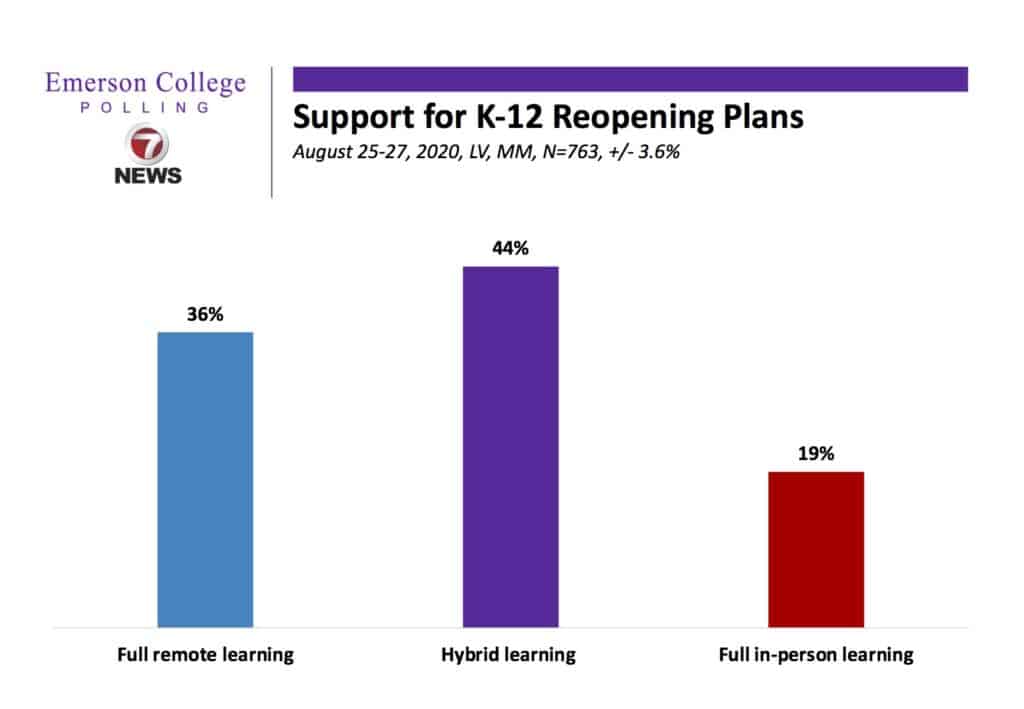
Regarding higher education in the Commonwealth, a majority, 62%, said colleges and universities should not be opening with in-person classes.
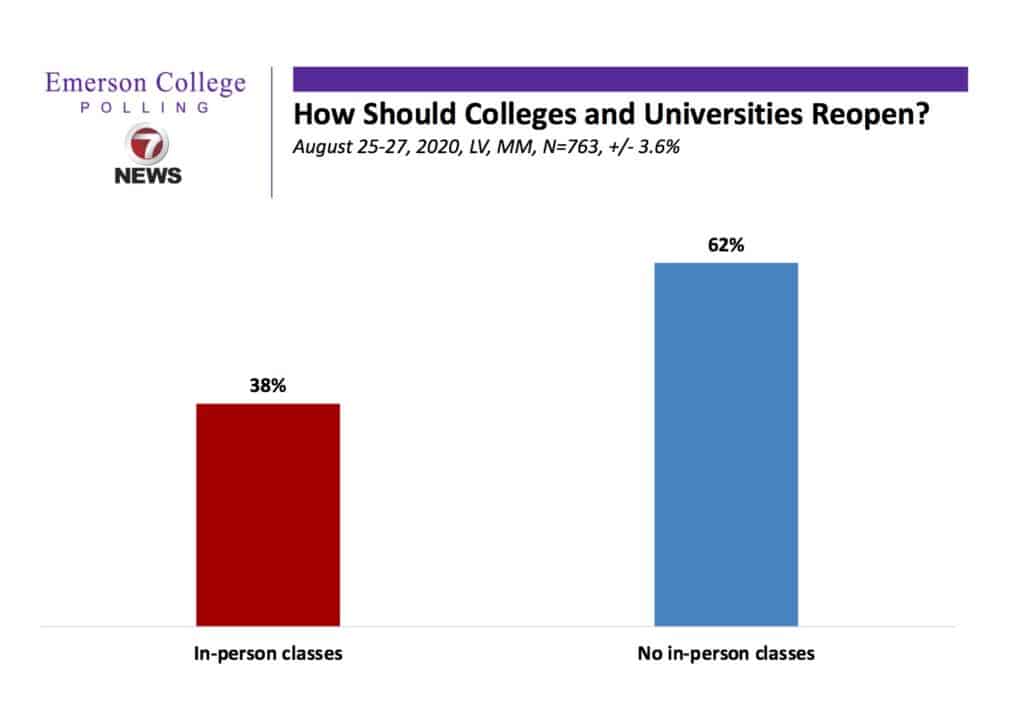
When asked about how safe they feel about going to a dine-in restaurant, 51% said they would feel safe and 49% reported they would feel unsafe. When asked about going to the gym, 32% said it would be safe and 68% said it would be unsafe. Going to movie theatres was seen as safe by 30% of voters and not safe by 70%.
Caller ID
The Massachusetts Emerson College/WHDH poll was conducted August 25-27, 2020. The sample consisted of likely registered voters, n=763, with a Credibility Interval (CI) similar to a poll’s margin of error (MOE) of +/-3.6 percentage points. The data sets were weighted by gender, age, education, voter registration and race based on voter turnout modeling using the 2016 US Census Voting and Registration Supplemental data sets and 2016 official vote results. It is important to remember that subsets based on gender, age, party breakdown, ethnicity, and region carry with them higher margins of error, as the sample size is reduced. Data was collected using an Interactive Voice Response (IVR) system of landlines (n=367), SMS to text mobile (n=254), and an online panel provided by MTurk (n=154).




